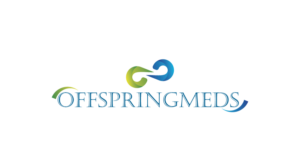While breastfeeding can be an incredibly personal and nurturing activity for many women, it is not without its challenges. This is especially true after a C-section, where the surgical process can delay the start of lactation. However, there are many effective strategies for increasing breast milk. With New Jersey Maternity Care support, you can confidently navigate your journey, giving you and your baby the best possible start.
Comprehending Breast Milk Supply After A C-Section With New Jersey Maternity Care
Due to factors like hormonal fluctuations or stress after surgery, as well as the physical recovery process, mothers can experience delayed milk flow. Nevertheless, with persistence and proper guidance, it’s still possible to stimulate and boost milk production. Maternity Care has resources and personalized support for mothers who are facing these challenges.
Tips To Boost Breast Milk Supply
- Start breastfeeding early
Even if milk isn’t yet fully produced, breastfeeding should be started as soon as possible following surgery. Early stimulation stimulates milk production by signaling your body to release prolactin and oxytocin. These are two hormones that are crucial for lactation. Most hospitals offer maternity care and encourage skin-to-skin contact in the recovery space.
- Ensure a Good Latch
A proper latch will ensure that milk is transferred effectively and stimulates the breasts. Consult a lactation advisor if you need help with latching techniques or positioning. Lactation support services are available in many Maternity Care centers to guide you.
- Pump Regularly
The use of a pump to stimulate milk can help imitate a baby’s feeding pattern. It is best to aim for a pumping every 2-3 hrs, even if initially only small amounts of breast milk are expressed. Double pumping – which involves pumping from both breasts simultaneously – can also increase your milk supply.
- Stay Hydrated and Nourished
Producing milk requires extra calories and fluids. Drink plenty of water during the day, and include nutrient-dense foods like whole grains in your diet. Flaxseeds, fenugreek, and oats are also foods that promote milk production.
- Prioritize Rest and Recovery
You need to allow your body time to recover from major surgery. Stress or excessive exercise can disrupt lactation. Get help with household tasks or other responsibilities to allow you more time for rest and breastfeeding. Maternity care providers place a high priority on postpartum care as part of comprehensive maternal treatment.
- Breastfeed or Pump on Demand
Frequent feeding and pumping are effective ways to stimulate milk production. Aim to have 8-12 feedings within 24 hour period. No need to follow a strict schedule. Just following your baby’s hunger signals or pumping as necessary will naturally encourage the production of milk.
- Practice Skin-to-Skin Contact
This promotes a bonding experience with your child and also helps to stimulate milk-producing hormones. Spend as many minutes as possible, preferably before feeding your baby, in this position to help your system respond positively.
- Consider Galactagogues
Galactagogues are substances thought to improve milk supply. Some of these include herbal supplements and prescription drugs, like milk thistle (blessed thistle), fenugreek (milk thistle), or blessed Thistle (blessed thistle). To ensure that you and/or your baby are not at risk, always check with your healthcare provider prior to using any supplements.
- Manage Stress
Stress can significantly affect milk production. Include relaxation methods like deep breathing, meditation, or yoga in your daily regimen. Participating in activities that you find enjoyable, such as listening to music or walking for a short time, can help calm your mind.
- Seek Professional Support
You shouldn’t be shy about asking for help when you have difficulty breastfeeding. New Jersey’s lactation specialists, postpartum care providers, and maternity groups offer support and resources to help you on your journey.
Building Confidence In Your Breastfeeding Journey
The breastfeeding journey of every mother is unique. There’s no single solution that fits all. It’s fine to encounter challenges and get help along the journey. Maternity Care offers support to help you achieve a successful breastfeeding experience.
Breastfeeding after a C-section may require extra effort. Still, with the right strategies and support, it’s entirely possible to establish a healthy milk supply. Reach out to New Jersey Maternity Care to access personalized guidance and services tailored to your postpartum needs. Together, you and your baby can thrive on this rewarding journey.

